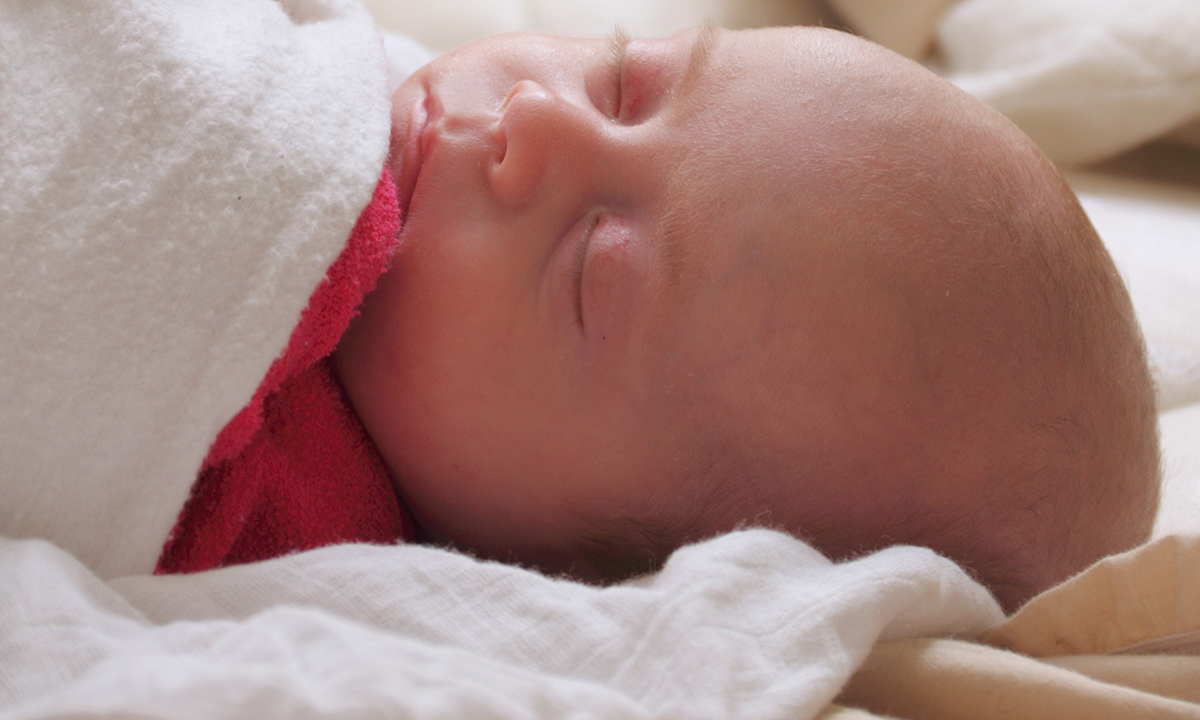NEW research reveals a worrying distrust of safe infant sleeping guidelines among some Australian parents, who blame back-to-sleep advice for babies developing plagiocephaly.
Focus groups and interviews with 91 parents, 6 grandparents and 24 clinicians in Sydney found that most caregivers stopped following the Australian SIDS and Kids guidance to put the baby to sleep on their back without a pillow, once they became concerned about a flat spot on their baby’s head.
Many put their babies to sleep in the prone position, and several reported buying pillows marketed to reduce flat spots – sometimes at the advice of a chiropractor.
The study, led by Associate Professor Alexandra Martiniuk at Sydney’s George Institute for Global Health, identified significant distress and frustration among parents of babies with plagiocephaly, who often complained of receiving inconsistent advice from GPs. Some parents mistakenly believed the condition could cause developmental delays.
Writing in the journal Child, the authors suggested that GPs and allied health professionals may need greater education on the issue of plagiocephaly so that diagnosis and treatment could occur at the first point of contact. They also stressed that health professionals should “re-emphasise sudden infant death syndrome [SIDS] guidelines for families when they present with an infant with plagiocephaly”.
Although safe infant sleeping campaigns have been linked with an 80% decrease in sudden unexpected infant deaths over the past 2 decades, this coincided with an “exponential” rise in the prevalence of positional skull deformation, the authors noted.
The study found plagiocephaly was “more of a reality” than SIDS to many parents, who were “upset that the back-to-sleep ‘rule’ was ‘giving’ their child flat head”. One parent expressed resentment at being “scared into believing” that their baby would die if they did not sleep on their back.
However, Professor Jeanine Young, a member of the SIDS and Kids National Scientific Advisory Group, told MJA InSight that the solution to plagiocephaly was not to put babies to sleep on their tummies, but to keep them off their backs when they were awake.
“Most positional plagiocephaly can be avoided by frequent short periods of tummy time,” she said.
Professor Young said that any conversation GPs had with parents about infant care at night could be accompanied by advice about day time care.
“Back sleeping is important for babies, but frequent tummy time is equally important when baby is awake and observed, and babies should not be left for long periods of time in car seats, bouncers or under baby gyms on their backs,” she said.
“We are a carrying species. We should carry our babies more.”
She also suggested parents may need to be better informed about the evidence and justifications for safe infant sleeping recommendations.
There were 113 sudden unexpected deaths in infancy (SUDI) in Australia in 2014. State and territory reports show a large number of these deaths involved prone sleeping and pillows, which increase the risk of suffocation.
In New South Wales for instance, pillows and other loose bedding or soft objects were implicated in 38 of the 43 SUDI cases in 2014 where the baby was found in a sleep environment. Only two of the babies who died were placed to sleep in accordance with safe sleeping guidelines.
Professor Young said that three risk factors typically interacted to lead to sudden unexpected infant deaths: a vulnerable baby (eg, preterm), a critical period in the baby’s development, and an external stressor (eg, prone sleeping, head covered, infection).
“Many grandparents will say ‘we always slept babies on their tummies and they were fine’,” Professor Young said. “But while it’s true that the majority of babies will survive despite having a risk factor present, such as being slept prone or having a pillow in their cot, we have no way of knowing which individuals are more vulnerable and what are the precise critical periods, and so it is safest to reduce all known external stressors.”
The authors of the latest study acknowledged it was limited by its purposive sampling technique. Some 32 parents in the study had children with mild plagiocephaly (requiring tummy time, repositioning, or physiotherapy). Six had children with severe plagiocephaly (requiring a head scan or a helmet). There were also parents with children without plagiocephaly in the study, and first-time expecting parents.
Latest news from doctorportal:
- Invest in health to avoid political disaster, Gannon tells Govt
- Doctors need to be taught how to discuss their patients’ excess weight
- New plan to find poor performing doctors
- Remote Australians more likely to be hospitalised with heart-related issues

 more_vert
more_vert